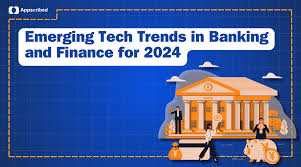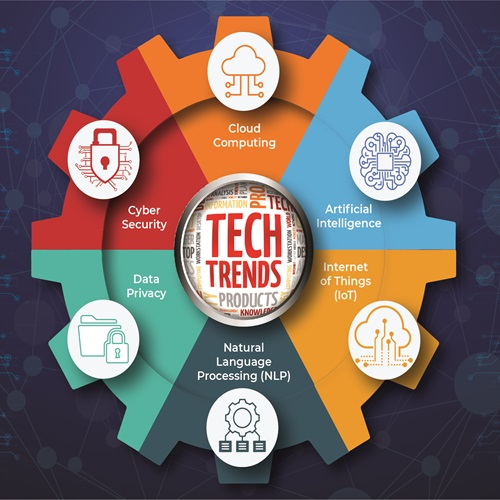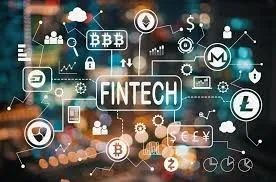101 Smart Types of Emerging Technologies in the Banking Sector in 2024
"Discover the world of finance through the insightful articles of Finance Keeda blog. From personal finance tips to investment strategies, our experts bring you the latest trends and actionable advice to help you make informed financial decisions. Explore topics like budgeting, saving, investing, and wealth management, and stay ahead in the ever-changing financial landscape. Unlock the secrets to financial success with Finance Keeda and take control of your money today!"
Wednesday, July 17, 2024
101 Smart Types of Emerging Technologies in the Banking Sector in 2024
### Introduction
The banking sector is undergoing a profound transformation in 2024, driven by the rapid evolution of emerging technologies within fintech. These technologies are not only reshaping traditional banking practices but also revolutionizing how financial services are delivered and experienced by consumers and businesses alike. From artificial intelligence and blockchain to biometric authentication and decentralized finance, the landscape of banking is increasingly defined by innovation.
This document explores the impact of emerging technologies on the banking sector in 2024. We will examine the advantages they bring, such as enhanced efficiency, security, and customer experience, as well as the challenges they pose, including regulatory concerns and cybersecurity risks. By understanding these dynamics, stakeholders in the banking industry can better navigate the transformative opportunities and complexities presented by fintech innovations.
### Emerging Technology in the Banking Sector
Emerging technologies in the banking sector encompass a wide range of innovations that are shaping the future of finance:
- **Artificial Intelligence (AI)**: Powering chatbots, customer service automation, and predictive analytics.
- **Blockchain Technology**: Facilitating secure and transparent transactions, smart contracts, and decentralized finance (DeFi).
- **Biometric Authentication**: Enhancing security through fingerprint, facial, and voice recognition.
- **Internet of Things (IoT)**: Enabling connected devices for personalized banking experiences and real-time data monitoring.
- **Big Data Analytics**: Utilizing large datasets to drive insights for risk management, customer behavior analysis, and personalized services.
- **Regtech Solutions**: Streamlining regulatory compliance processes through automation and data analytics.
- **Robotic Process Automation (RPA)**: Automating routine tasks such as account maintenance and transaction processing.
- **Cybersecurity Solutions**: Protecting against evolving threats with advanced encryption, threat detection, and prevention technologies.
1. **Artificial Intelligence (AI)**
2. **Machine Learning (ML)**
3. **Blockchain Technology**
4. **Cryptocurrencies**
5. **Decentralized Finance (DeFi)**
6. **Robotic Process Automation (RPA)**
7. **Regtech Solutions**
8. **Biometric Authentication**
9. **Digital Identity Verification**
10. **Smart Contracts**
11. **Open Banking APIs**
12. **Internet of Things (IoT)**
13. **Quantum Computing**
14. **Predictive Analytics**
15. **Natural Language Processing (NLP)**
16. **Voice-Activated Banking**
17. **Facial Recognition Technology**
18. **Augmented Reality (AR)**
19. **Virtual Reality (VR)**
20. **Contactless Payments**
21. **Mobile Wallets**
22. **Wearable Payment Devices**
23. **Smart ATMs**
24. **AI-Driven Chatbots**
25. **Big Data Analytics**
26. **Cloud Computing**
27. **Edge Computing**
28. **Data Lakes**
29. **Digital Currencies by Central Banks (CBDCs)**
30. **5G Technology**
31. **Digital Signatures**
32. **Cybersecurity Solutions**
33. **Distributed Ledger Technology (DLT)**
34. **Microservices Architecture**
35. **Application Programming Interfaces (APIs)**
36. **Payment Gateways**
37. **Peer-to-Peer (P2P) Payments**
38. **AI for Fraud Detection**
39. **Automated Loan Underwriting**
40. **Digital KYC (Know Your Customer)**
41. **Robo-Advisors**
42. **Virtual Banking Assistants**
43. **Voice Biometrics**
44. **Neural Networks**
45. **Gamification in Banking**
46. **AI-Driven Risk Management**
47. **Fintech Sandboxes**
48. **Tokenization of Assets**
49. **AI for Credit Scoring**
50. **Automated Investment Platforms**
51. **Crowdfunding Platforms**
52. **Smart Branch Technology**
53. **Self-Service Kiosks**
54. **AI-Powered Personal Finance Management**
55. **Predictive Maintenance for ATMs**
56. **AI in Regulatory Compliance**
57. **Cross-Border Payment Solutions**
58. **AI for Market Analysis**
59. **Personalized Financial Products**
60. **Blockchain-Based Auditing**
61. **Remote Onboarding Solutions**
62. **AI-Driven Marketing**
63. **Digital Twin Technology**
64. **Energy-Efficient Data Centers**
65. **AI for Portfolio Management**
66. **Behavioral Biometrics**
67. **Real-Time Payment Systems**
68. **Green Banking Technologies**
69. **AI in Wealth Management**
70. **Blockchain for Supply Chain Finance**
71. **Enhanced Due Diligence Tools**
72. **Automated Savings Apps**
73. **AI for Sentiment Analysis**
74. **Virtual Reality for Customer Engagement**
75. **Digital Lending Platforms**
76. **Instant Loan Disbursement**
77. **AI for Transaction Monitoring**
78. **Blockchain for Trade Finance**
79. **Digital Receipt Management**
80. **AI in Financial Advisory**
81. **Blockchain for Real Estate Transactions**
82. **Voice Commerce**
83. **AI-Enhanced Customer Insights**
84. **Financial Inclusion Technologies**
85. **Blockchain for Voting Systems in Corporate Governance**
86. **AI for Customer Retention**
87. **Blockchain for Data Privacy**
88. **Hyper-Personalization**
89. **AI for Financial Forecasting**
90. **Blockchain for Cross-Industry Collaborations**
91. **AI-Driven Content Personalization**
92. **Fintech Ecosystems**
93. **AI for Stress Testing**
94. **Smart Grid Banking Solutions**
95. **Blockchain for Identity Management**
96. **AI for Tax Preparation**
97. **Virtual Branches**
98. **Predictive Customer Service**
99. **AI for Anti-Money Laundering (AML)**
100. **Quantum-Secure Encryption**
101. **Digital Transformation Platforms**
These technologies are reshaping the banking sector, enhancing efficiency, security, and customer experience. As we move further into 2024, staying abreast of these innovations is crucial for banks and financial institutions aiming to remain competitive and meet evolving customer expectations.
### Pros and Cons of Emerging Technologies in Banking
**Pros:**
- **Enhanced Efficiency**: Automation reduces operational costs and speeds up processes.
- **Improved Customer Experience**: Personalized services and faster transaction times.
- **Increased Security**: Advanced authentication methods and robust cybersecurity measures.
- **Financial Inclusion**: Extending services to underserved populations through digital channels.
- **Innovation**: Driving new product development and competitive differentiation.
**Cons:**
- **Cybersecurity Risks**: Vulnerabilities to cyberattacks and data breaches.
- **Regulatory Challenges**: Compliance with evolving regulations and legal frameworks.
- **Dependency on Technology**: Potential disruptions from system failures or technical glitches.
- **Skill Gaps**: Need for skilled personnel to manage and leverage emerging technologies.
- **Privacy Concerns**: Collection and use of sensitive customer data.
### Conclusion
As we navigate the landscape of 2024, the integration of emerging technologies in the banking sector represents both promise and challenge. Embracing these innovations can lead to greater efficiency, security, and customer satisfaction. However, stakeholders must remain vigilant in addressing risks and ensuring compliance with regulatory requirements. By leveraging the strengths of fintech, banks can position themselves at the forefront of industry transformation, delivering value-driven solutions that meet the evolving needs of a digital-first world.
### Thank You
Thank you for exploring the impact of emerging technologies on the banking sector in 2024. Embracing innovation while managing risks is key to shaping a sustainable and customer-centric future for banking.
101 Ways Fintech Trends Affect the Future of Passive Income in 2024
101 Ways Fintech Trends Affect the Future of Passive Income in 2024
### Introduction
In 2024, the financial technology (fintech) sector will continue to grow rapidly, offering innovative solutions that redefine how we manage and generate income. One of the most transformative aspects of fintech is its impact on passive income. Traditionally, passive income sources like real estate, dividends, and interest have required significant capital and active management. However, advancements in technology are democratizing access to these income streams and introducing new opportunities that require minimal effort.
This explores 101 ways fintech trends are affecting the future of passive income in 2024. From AI-driven investment platforms to blockchain-based financial products, these trends offer a glimpse into the evolving landscape of financial independence. We'll delve into the advantages and challenges these innovations bring, providing a comprehensive overview of how technology is reshaping the concept of earning money passively. Whether you are a seasoned investor or a newcomer to the world of passive income, understanding these trends is crucial for leveraging the potential of fintech in the modern financial ecosystem.
### 101 Ways Fintech Trends Affect the Future of Passive Income in 2024
1. **Robo-Advisors**: Automated investment platforms that manage portfolios with minimal human intervention, providing steady returns.
2. **AI-Powered Trading Bots**: AI algorithms that execute trades on behalf of users, optimizing for profit with minimal input.
3. **Cryptocurrency Staking**: Earning rewards for holding and staking cryptocurrencies in a wallet.
4. **DeFi Lending**: Earning interest by lending out cryptocurrencies on decentralized finance platforms.
5. **P2P Lending**: Investing in peer-to-peer lending platforms to earn interest on loans.
6. **Real Estate Crowdfunding**: Investing in real estate projects via crowdfunding platforms to earn rental income and appreciation.
7. **Dividend Reinvestment Plans (DRIPs)**: Automatically reinvesting dividends from stocks to compound earnings over time.
8. **High-Yield Savings Accounts**: Fintech platforms offer higher interest rates on savings.
9. **Yield Farming**: Earning returns by providing liquidity to decentralized exchanges.
10. **Fractional Ownership**: Investing in fractional shares of real estate, art, or other assets for passive income.
11. **Automated Savings Apps**: Apps that save and invest spare change or regular contributions automatically.
12. **ETF Portfolios**: Investing in diversified portfolios of Exchange-Traded Funds (ETFs) managed by fintech platforms.
13. **Peer-to-Peer Insurance**: Earning returns by participating in peer-to-peer insurance pools.
14. **Blockchain Royalties**: Earning royalties from blockchain-based intellectual property.
15. **Interest-Bearing Crypto Accounts**: Earning interest on cryptocurrency holdings in specialized accounts.
16. **AI Investment Advisors**: AI-driven advice for optimizing passive income strategies.
17. **Social Trading Platforms**: Copying the trades of successful investors to earn returns.
18. **Micro-Investment Platforms**: Investing small amounts regularly through apps that pool funds for greater returns.
19. **Real Estate Investment Trusts (REITs)**: Investing in REITs via fintech platforms for passive rental income.
20. **Tokenized Assets**: Earning from investments in tokenized real-world assets.
21. **Smart Contracts for Royalties**: Automated royalty payments through smart contracts.
22. **Passive Index Funds**: Investing in index funds managed by fintech platforms for steady growth.
23. **AI for Portfolio Optimization**: AI tools that optimize investment portfolios for better passive income.
24. **Blockchain-Based Bonds**: Earning interest from blockchain-issued bonds.
25. **AI-Driven Tax-Loss Harvesting**: Reducing taxable income through automated tax-loss harvesting strategies.
26. **Digital Gold**: Investing in digital gold for stable returns.
27. **Fintech Managed IRAs**: Passive income through fintech-managed Individual Retirement Accounts (IRAs).
28. **Blockchain Real Estate**: Earning from blockchain-based real estate investments.
29. **Automated Rental Property Management**: Platforms that manage rental properties for passive income.
30. **Cryptocurrency Dividends**: Earning dividends from cryptocurrency projects.
31. **Online Business Marketplaces**: Buying and managing online businesses for passive income.
32. **Automated Affiliate Marketing**: Platforms that automate affiliate marketing campaigns.
33. **Fintech Savings Challenges**: Participating in savings challenges for incentives and returns.
34. **Automated E-commerce Stores**: Earning from automated online stores.
35. **Subscription Box Services**: Investing in subscription-based businesses for recurring income.
36. **Digital Art and NFTs**: Earning from investments in digital art and Non-Fungible Tokens (NFTs).
37. **Passive Income through Apps**: Apps that generate passive income through various mechanisms, such as ad revenue sharing.
38. **Sustainable Investment Funds**: Investing in ESG (Environmental, Social, Governance) funds for long-term returns.
39. **AI-Enhanced Index Funds**: Funds managed with the aid of AI for optimal returns.
40. **Royalties from E-books**: Earning passive income from self-published e-books.
41. **Automated Forex Trading**: Using fintech platforms for automated forex trading.
42. **Passive Income from Apps**: Developing and monetizing apps for recurring revenue.
43. **Automated Dropshipping**: Earning from automated dropshipping businesses.
44. **Cryptocurrency Masternodes**: Operating masternodes to earn rewards.
45. **Digital Real Estate**: Investing in digital assets such as domain names and websites.
46. **AI for Dividend Stock Selection**: AI tools for selecting high-dividend stocks.
47. **Fintech-Enabled Bond Funds**: Investing in bond funds managed by fintech platforms.
48. **Automated Credit Card Rewards**: Platforms that optimize credit card reward points for cash back.
49. **Peer-to-Peer Car Sharing**: Earning from renting out personal vehicles via fintech platforms.
50. **Fintech-Mediated Annuities**: Investing in annuities through fintech platforms for steady income.
51. **AI-Powered Savings Recommendations**: AI tools that suggest the best savings strategies.
52. **Digital Product Sales**: Earning from automated sales of digital products like software or courses.
53. **Blockchain Gaming Rewards**: Earning passive income from blockchain-based games.
54. **Passive Income from Podcasts**: Monetizing podcasts through sponsorships and ads.
55. **Automated Stock Trading**: Using fintech platforms for automated trading strategies.
56. **AI for Real Estate Analysis**: AI tools that identify lucrative real estate investments.
57. **Fintech-Facilitated REITs**: Investing in REITs through fintech platforms.
58. **Cryptocurrency Interest Accounts**: Earning interest on crypto deposits.
59. **AI-Managed Hedge Funds**: Hedge funds managed by AI for optimal returns.
60. **Passive Income from Licensing**: Licensing intellectual property for royalties.
61. **Crowdfunded Renewable Energy Projects**: Investing in renewable energy for passive income.
62. **Fintech Platforms for Peer Lending**: Platforms that facilitate peer-to-peer lending.
63. **Automated Investment Algorithms**: Using algorithms for hands-off investment management.
64. **Decentralized Autonomous Organizations (DAOs)**: Earning from participation in DAOs.
65. **Passive Income from Blogging**: Monetizing blogs through ads and affiliate marketing.
66. **AI-Optimized Rental Pricing**: Tools that optimize rental property pricing for higher income.
67. **Fintech-Managed Real Estate Portfolios**: Investing in real estate portfolios managed by fintech platforms.
68. **Cryptocurrency Mining**: Earning from mining cryptocurrencies.
69. **AI for Predictive Investment Analysis**: AI predicting market trends for better investment decisions.
70. **Peer-to-Peer Rental Platforms**: Renting out assets like tools and equipment for passive income.
71. **Fintech-Enabled Microloans**: Investing in microloans through fintech platforms.
72. **Passive Income from Music Royalties**: Earning royalties from music licensing.
73. **Automated Content Creation**: Platforms that create and monetize content automatically.
74. **Blockchain-Based Art Investments**: Investing in digital art through blockchain.
75. **Passive Income from Online Courses**: Creating and selling online courses.
76. **Fintech for Angel Investing**: Platforms that facilitate angel investing.
77. **AI for Property Management**: Tools that automate property management tasks.
78. **Cryptocurrency Yield Aggregators**: Aggregators that optimize yield farming strategies.
79. **AI-Driven Tax Optimization**: Tools that optimize tax strategies for higher net returns.
80. **Digital Collectibles Investments**: Earning from trading digital collectibles.
81. **Fintech Platforms for Investment Clubs**: Platforms that facilitate group investments.
82. **Passive Income from YouTube**: Monetizing YouTube channels through ads and sponsorships.
83. **AI for Predictive Analytics in Investing**: Using AI to predict and optimize investments.
84. **Fintech-Enabled Crowdsourcing**: Earning from crowdsourced projects.
85. **Automated Domain Investing**: Buying and selling domain names for profit.
86. **AI-Managed Savings Accounts**: Accounts managed by AI for optimal interest rates.
87. **Blockchain-Based Royalty Tracking**: Securely tracking and earning royalties from various sources.
88. **Passive Income from E-commerce**: Running automated e-commerce businesses.
89. **AI for Real Estate Valuation**: Tools that accurately assess real estate values for better investment.
90. **Fintech-Managed Trust Funds**: Investing in trust funds managed by fintech platforms.
91. **Cryptocurrency Arbitrage**: Earning from price differences between cryptocurrency exchanges.
92. **AI-Driven Marketing Automation**: Platforms that automate marketing efforts for passive income.
93. **Blockchain for Fractional Property Ownership**: Investing in fractional property ownership through blockchain.
94. **Passive Income from Webinars**: Monetizing webinars through registration fees and sponsorships.
95. **Fintech for Small Business Loans**: Earning interest from small business loans facilitated by fintech platforms.
96. **Automated Forex Arbitrage**: Using fintech tools for forex arbitrage trading.
97. **AI for Energy Efficiency Savings**: Tools that optimize energy use for cost savings.
98. **Blockchain for Peer-to-Peer Energy Trading**: Earning from decentralized energy trading.
99. **Passive Income from Stock Photography**: Selling stock photos on digital platforms.
100. **Fintech-Enabled Venture Capital**: Participating in venture capital investments through fintech platforms.
101. **AI for Insurance Premium Optimization**: Tools that find the best insurance rates, saving money for investment.
### Overview of Fintech's Impact on Passive Income
**Pros:**
1. **Increased Accessibility:** Fintech platforms democratize access to various investment opportunities.
2. **Automation:** Reduces the need for active management
and oversight.
3. **Diversification:** Enables small investors to diversify their portfolios across various asset classes.
4. **Efficiency:** Streamlined processes and lower fees compared to traditional financial services.
5. **Personalization:** AI and machine learning provide personalized investment strategies.
**Cons:**
1. **Security Risks:** Increased reliance on digital platforms can expose investors to cyber threats.
2. **Regulatory Uncertainty:** Rapid innovation may outpace existing regulatory frameworks.
3. **Market Volatility:** Some fintech investment options, especially cryptocurrencies, can be highly volatile.
4. **Complexity:** The proliferation of new technologies and platforms can be overwhelming for average investors.
5. **Dependency on Technology:** Heavy reliance on technology may pose risks if systems fail or become obsolete.
### Conclusion
Fintech is revolutionizing the way individuals generate passive income by offering innovative, automated, and accessible investment opportunities. From AI-driven trading bots to decentralized finance platforms, the fintech landscape provides a myriad of ways to earn passive income in 2024. However, investors must navigate challenges such as security risks, regulatory issues, and market volatility. By leveraging the benefits and staying informed about potential pitfalls, individuals can effectively harness fintech to build and grow their passive income streams.
### Thank You
Thank you for exploring the myriad ways fintech trends are shaping the future of passive income. Staying informed and adaptable in this rapidly evolving landscape is key to maximizing the opportunities and mitigating the risks associated with fintech innovations.
101 Global Emerging Trends in Fintech for 2024
101 Global Emerging Trends in Fintech for 2024
In 2024, the financial sector is undergoing a significant transformation driven by rapid technological advancements. Financial technology, or fintech, is at the forefront of this revolution, reshaping how financial services are delivered and consumed globally. Emerging technologies such as artificial intelligence, blockchain, and big data analytics are not only enhancing the efficiency and security of financial transactions but also expanding access to financial services. This document explores 101 global emerging trends in fintech, providing an overview of their impact on the future of finance, their advantages, and the challenges they pose.
- AI-Driven Customer Service: Fintech companies increasingly use AI chatbots to provide 24/7 customer support.
- Blockchain-Based Payments: Enhanced security and transparency in transactions using blockchain.
- Cryptocurrency Adoption: More businesses and consumers accepting cryptocurrencies as payment.
- Decentralized Finance (DeFi): Growth in platforms offering financial services without traditional banks.
- Regtech Innovations: Automated regulatory compliance using AI and machine learning.
- Biometric Authentication: Increased use of fingerprints, facial recognition, and voice recognition for secure transactions.
- Smart Contracts: Self-executing contracts on blockchain platforms.
- Digital Identity Verification: Secure identity management using blockchain and biometrics.
- AI for Fraud Detection: Advanced AI algorithms identifying and preventing fraudulent activities.
- Robo-Advisors: Automated investment advice and portfolio management.
- Open Banking APIs: Banks offering APIs to third parties for developing new financial services.
- Contactless Payments: Growth in NFC and QR code payments.
- Mobile Wallets: Increased use of mobile wallets like Apple Pay, Google Wallet, and others.
- Fintech Ecosystems: Collaboration between fintech startups and traditional financial institutions.
- Peer-to-Peer Lending: Platforms connecting borrowers directly with lenders.
- Crowdfunding: Online platforms for raising capital for startups and projects.
- AI-Powered Credit Scoring: More accurate credit scoring using machine learning.
- Voice-Activated Banking: Voice recognition technology for banking transactions.
- Neobanks: Digital-only banks offering innovative financial products.
- Insurance Tech (Insurtech): Use of technology to streamline insurance processes.
- Predictive Analytics: Using data to predict customer behavior and market trends.
- Quantum Computing: Potential to solve complex financial problems quickly.
- IoT in Finance: Internet of Things devices providing real-time data for financial services.
- Sustainable Finance: Investments in green and sustainable projects.
- Digital Currencies by Central Banks: Central bank digital currencies (CBDCs) gaining traction.
- AI for Investment Strategies: AI-driven strategies for optimized investments.
- Blockchain for Supply Chain Finance: Enhancing transparency and efficiency in supply chains.
- Smart ATMs: Advanced ATMs offering more services and personalized interactions.
- AI in Wealth Management: Personalized wealth management using AI.
- Tokenization of Assets: Real-world assets being tokenized and traded on blockchain platforms.
- Digital-Only Insurance: Insurance companies operating exclusively online.
- AI for Anti-Money Laundering (AML): AI detecting and preventing money laundering.
- Automated Savings Apps: Apps that automatically save money based on user behavior.
- Blockchain for Cross-Border Payments: Reducing costs and time for international payments.
- AI in Loan Underwriting: AI assessing creditworthiness more accurately.
- Digital Twins in Finance: Digital replicas of physical assets for better financial decision-making.
- AI for Market Research: AI analyzing market trends and consumer sentiment.
- Blockchain for Intellectual Property: Secure management of intellectual property rights.
- Digital Wallet Interoperability: Seamless interaction between different digital wallet platforms.
- AI in Behavioral Finance: Analyzing behavioral patterns to predict financial decisions.
- Blockchain for Trade Finance: Secure and transparent trade finance using blockchain.
- Blockchain for Real Estate Transactions: Simplifying and securing real estate transactions.
- AI for Tax Preparation: Automated and accurate tax preparation using AI.
- Regulatory Sandboxes: Controlled environments for testing new fintech products.
- AI-Enhanced Financial Planning: AI tools for personalized financial planning.
- Blockchain for Data Privacy: Secure data privacy management using blockchain.
- AI for Customer Insights: Analyzing customer data for deeper insights and personalization.
- Fintech for Gig Economy: Financial services tailored for gig workers.
- Blockchain for Voting in Corporate Governance: Secure voting systems for corporate governance.
- AI for Enhanced Customer Experience: Improving customer experience with AI.
- Crowd Insurance: Community-based insurance models.
- Micro-Investment Platforms: Platforms enabling small-scale investments.
- AI for Sentiment Analysis in Trading: Analyzing market sentiment for better trading decisions.
- Digital Escrow Services: Secure digital escrow for various transactions.
- AI for Predictive Customer Service: Predicting and addressing customer issues proactively.
- Blockchain for Charity Donations: Transparent and accountable charity donations.
- AI in Personal Finance Management: Tools for managing personal finances.
- Social Trading Platforms: Platforms allowing users to follow and replicate trades.
- Blockchain for Healthcare Finance: Streamlining healthcare finance processes.
- AI in Financial Journalism: AI-generated financial news and analysis.
- Predictive Maintenance for ATMs: IoT and AI ensuring proactive ATM maintenance.
- Blockchain for Voting Systems: Secure political voting systems using blockchain.
- AI in Financial Education: Personalized learning experiences in finance.
- Blockchain for Legal Contracts: Secure and transparent legal contract management.
- AI in Financial Research: Accelerating financial research with AI.
- Blockchain for Copyright Protection: Secure management of copyright using blockchain.
- AI for Investment Risk Assessment: Assessing investment risks with AI.
- Blockchain for Contract Management: Streamlining contract management processes.
- AI for Financial Forecasting: Accurate financial forecasting using AI.
- Digital Currencies for Remittances: Using digital currencies for cross-border remittances.
- AI in Asset Management: Optimizing asset management strategies with AI.
- Blockchain for Energy Trading: Peer-to-peer energy trading using blockchain.
- AI for Tax Compliance: Ensuring tax compliance with AI.
- Blockchain for Digital Identity Verification: Enhancing digital identity verification processes.
- AI in Portfolio Management: AI-driven portfolio management.
- Blockchain for Smart Grids: Improving smart grid operations with blockchain.
- AI for Fraud Prevention in E-commerce: Preventing e-commerce fraud with AI.
- Blockchain for Microfinance: Enhancing transparency in microfinance.
- Digital Signatures: Secure approval processes with digital signatures.
- AI in Financial Planning: Personalized financial planning with AI.
- Blockchain for Cross-Industry Collaborations: Secure collaborations across industries using blockchain.
- AI for Market Sentiment Analysis: Gauging market sentiment with AI.
- Blockchain for Data Privacy: Secure data privacy with blockchain.
- AI for Customer Retention: Improving customer retention with AI.
- Blockchain for Government Finance: Enhancing government financial transactions with blockchain.
- AI for Financial News Analysis: Analyzing financial news with AI.
- Blockchain for Supply Chain Transparency: Improving supply chain transparency with blockchain.
- AI for Financial Fraud Detection: Detecting financial fraud with AI.
- Blockchain for Voting in Elections: Secure political elections with blockchain.
- AI for Financial Research: Accelerating financial research with AI.
- Blockchain for Copyright Protection: Managing copyright with blockchain.
- AI for Investment Risk Assessment: Assessing investment risks with AI.
- Blockchain for Contract Management: Streamlining contract management with blockchain.
- AI for Financial Forecasting: Accurate financial forecasting with AI.
- Digital Currencies for Remittances: Using digital currencies for remittances.
- AI in Asset Management: Optimizing asset management with AI.
- Blockchain for Energy Trading: Peer-to-peer energy trading with blockchain.
- AI for Tax Compliance: Ensuring tax compliance with AI.
- Blockchain for Digital Identity Verification: Enhancing digital identity verification with blockchain.
- AI in Portfolio Management: AI-driven portfolio management.
- Blockchain for Smart Grids: Improving smart grid operations with blockchain.
**Pros:**
1. **Efficiency:** Automation and AI streamline operations, reducing time and costs.
2. **Security:** Blockchain and advanced authentication methods enhance security.
3. **Customer Experience:** Personalized services and 24/7 accessibility improve user satisfaction.
4. **Inclusion:** Digital platforms provide access to financial services for underserved populations.
5. **Innovation:** Fintech startups drive innovation and competition, improving financial products and services.
**Cons:**
1. **Security Risks:** New technologies introduce vulnerabilities that can be exploited by cybercriminals.
2. **Regulatory Challenges:** Rapid innovation often outpaces regulatory frameworks.
3. **Job Displacement:** Automation and AI may lead to job losses in certain sectors.
4. **Market Volatility:** Cryptocurrencies and digital assets can be highly volatile.
5. **Privacy Concerns:** Extensive data collection raises significant privacy issues.
### Conclusion
The fintech revolution is transforming the global financial landscape, offering numerous benefits such as enhanced efficiency, security, and financial inclusion. However, these advancements come with challenges, including security risks, regulatory issues, and potential job displacement. To maximize the benefits and mitigate the risks, collaboration between fintech innovators, regulators, and traditional financial institutions is essential. By staying informed and adaptable, the financial industry can harness the full potential of these emerging technologies and navigate the future of finance successfully.
### Thank You
Thank you for exploring the global emerging trends in fintech for 2024. Understanding these trends is crucial for appreciating the profound impact of technology on finance and preparing for the dynamic changes ahead.
Subscribe to:
Comments (Atom)
The Power of Solitude: Embracing the Quiet Within in 2026
The Power of Solitude: Embracing the Quiet Within in 2026 The Power of Solitude: Embracing the Quiet Within in 2026 Introduction In a hype...

-
The 2025 Financial Success Roadmap: 101 Essential Milestones for Achieving Your Goals The 2025 Financial Success Roadmap: 101 Essential Mi...
-
101 Ways to Generate a Steady Income Stream in Retirement Without Taking Too Much Risk in 2025 Introduction Retirement can be a wonderful ...
-
The Real Estate Investing Revolution: 101 Game-Changing Strategies for Success in 2025 The Real Estate Investing Revolution: 101 Game-Chan...












